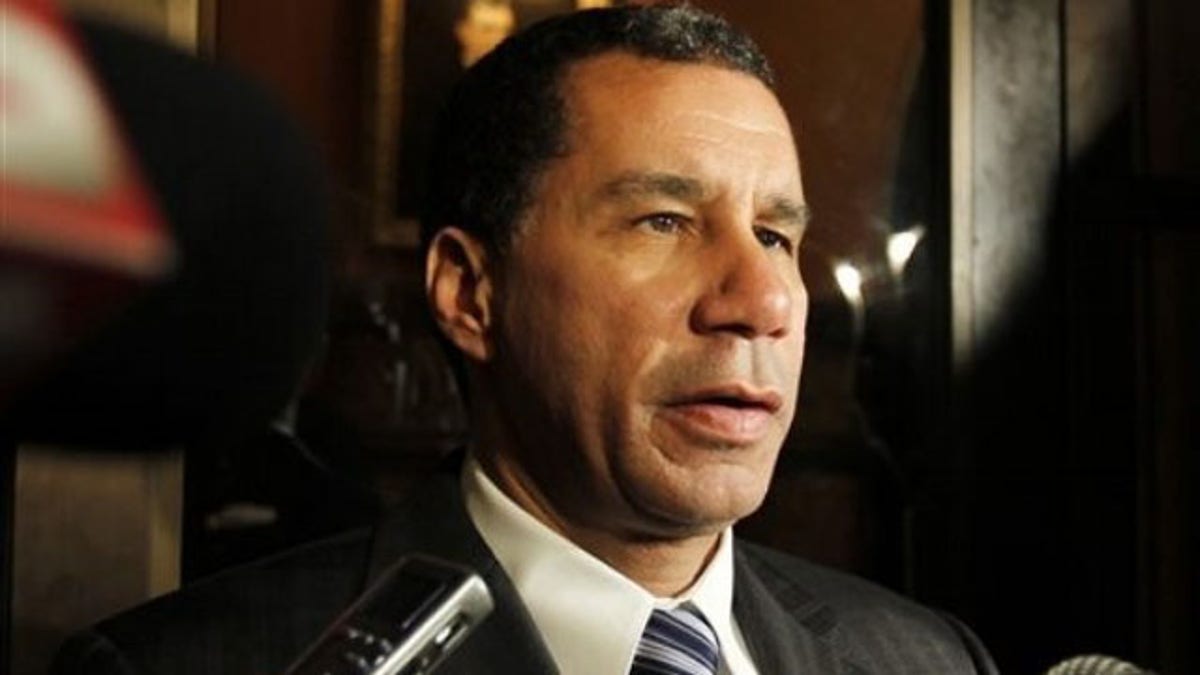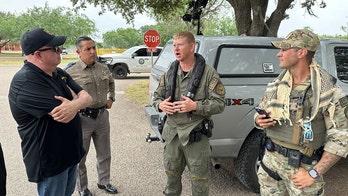
FILE: Gov. David Paterson has vowed to collect taxes on cigarettes sold by Native American vendors. (AP)
The developers of the so-called Ground Zero mosque rejected New York Gov. David Paterson's offer to provide state property if the project is moved farther away from where the twin towers once stood.
In an effort to appease disputing parties, Paterson had said Tuesday that he would provide state help to the group sponsoring the Cordoba House if the developers opt to move it elsewhere.
"Frankly, if the sponsors were looking for property anywhere at a distance that would be such that it would accommodate a better feeling among the people who are frustrated, I would look into trying to provide them with the state property they would need," Paterson said.
While Paterson has "no objection" to the mosque being built a few blocks away from Ground Zero, he said he’s "very sensitive to the desire of those who are adamant against it to see something else worked out."
But Paterson said Wednesday that the developers told his office they weren't interested in moving.
"I think they would like to stay where they are, and I certainly respect that and I certainly respect them," Paterson said. "Having said that, how much more foresighted would it have been if the imam who is the developer of the project had been willing to hear what we are actually talking about?"
The building of the $100 million Islamic center and mosque has led to a firestorm of criticism over its proposed location – just a few blocks away from the site of the Sept. 11, 2001, attacks by Islamic terrorists that left nearly 3,000 dead.
A handful of Republicans, like former Alaska Gov. Sarah Palin, Arizona Sen. John McCain and former House Speaker Newt Gingrich, have blasted the project’s location, while others, including New York City Mayor Michael Bloomberg, have forcefully defended it as a symbol of America's religious tolerance.
Religious leaders from various denominations also have supported the group's plans, arguing that critics' attacks amount to "religious bigotry."
"It’s simply wrong for Newt Gingrich and Sarah Palin, public figures who frequently reference their Christian values, to malign all Muslims by comparing this cultural center and mosque with a radical ideology that led to the horrific attacks of 9-11," said Sister Simone Campbell, executive director of NETWORK, a national lobbying group that advocates Catholic social justice. "We fail to honor those killed by terrorists when we betray the bedrock principle of religious freedom that has guided our democracy for centuries."
On Wednesday, the group leading the opposition against the mosque's planned location called the governor's "willingness to engage this issue” a “positive development."
"We’re pleased that he realizes the sensitive nature of this issue," said Jay Sekulow, chief counsel for the American Center for Law and Justice, adding that he supports "having other land available to the mosque" but wouldn't want taxpayers to subsidize it.
The American Center for Law and Justice is fighting the New York City Landmarks Preservation Committee over the mosque plans -- the group filed suit against the committee after it declined to grant landmark status to the proposed site. The tower could span up to 15 stories and will house a mosque, a 500-seat auditorium and a pool.
The group also is calling on the State Department to back off plans to sponsor the imam of that controversial mosque on an upcoming trip to the Middle East.
The department confirmed Tuesday that the administration is sponsoring Feisal Abdul Rauf's trip to Qatar, Bahrain and the United Arab Emirates, which is described as part of a program to send Muslims abroad to educate other countries about the role of religion in the United States. Rauf made similar trips during the Bush administration. Rauf has become a controversial figure because of his refusal to acknowledge Hamas as a terrorist organization, which is how the U.S. government classifies the group.
The State Department, meanwhile, has defended Rauf and his planned visit to the Middle East.
"He is a distinguished Muslim cleric," said State Department Spokesman P.J. Crowley. "We do have a program whereby, through our Educational and Cultural Affairs Bureau here at the State Department, we send people from Muslim communities here in this country around the world to help people overseas understand our society and the role of religion within our society."




